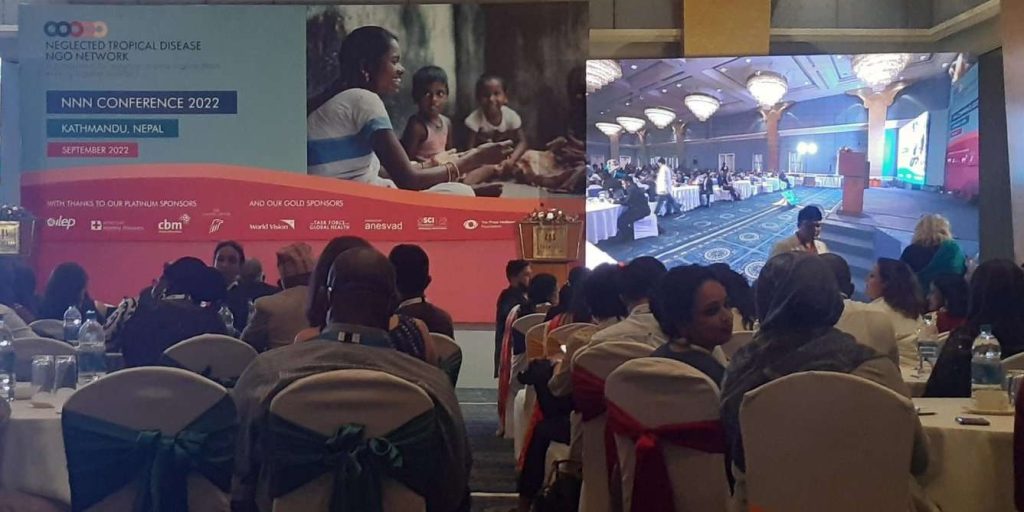The MENTOR Initiative, a sponsor of the Neglected Tropical Diseases NGO Network (NNN) conference, attended in person to share experiences and best practice with implementing partners and national NTD programmes. MENTOR is an active member of NNN and contributed to some of the cross-cutting groups that met.
The theme of the conference: NTDs in health systems – innovate, integrate and empower provided the framework for key discussions such as those around Sustainability of NTD programming. This was a core element of discussions about the importance of improving country ownership in line with the WHO Roadmap. This is closely linked to the need to ensure resource mobilisation in a country, so that existing health system staff and structures can deliver core interventions.
It was recognised that up until 2020 the focus was on achieving impact and quick results aiming to eliminate some of the diseases. But this approach is changing as countries gradually adopt the leadership and internal mobilisation of resources that ensure sustainable results.
MENTOR has been supporting this transition in Angola. The Ministry of Health is starting to prioritise NTDs, and mobilise funds and staff to NTD activities at district level despite the challenges to increase coverage of interventions across the country.
Although progress has been made by the NTD community in the past 10 years, there are still gaps to cover to ensure countries move at a similar pace. The challenge of conflicts and humanitarian emergencies undermines progress, which were discussed with the Conflict and Humanitarian Emergencies Cross Cutting Group. MENTOR has been actively engaged in this group sharing its experiences of implementing NTD control activities in South Sudan and Syria. Some of the challenges in these settings include accessing (security, geographical) affected populations which can create gaps in implementation.
Beyond challenges posed by conflicting settings, other factors that may also undermine progress are hard to reach populations and insufficient coverage of interventions.
Two workshops focused on hard to reach populations and the challenges they pose to effectively implement NTD activities. The key message to tackle these populations is to adjust programming to ensure reach. This may require innovative approaches to tailor implementation such as the use of social media; engaging local leaders in planning and implementation; and researching the key social, behavioural and economic barriers faced by these populations.
MENTOR has been adapting its programmes to ensure hard to reach populations such as seasonal workers, nomads and displaced populations are adequately identified and targeted for interventions in countries such as Syria, South Sudan and Angola.
Another key issue discussed is the challenge to achieve coverage that enables impact. The role of monitoring tools was discussed. MENTOR was able to share the experience of using Coverage Evaluation Surveys and its adaptations, Supervisor Coverage Tools and the use of digital systems to track the progress of Mass Drug Administration campaigns.
MENTOR has been supporting the Angola NTD programme to adapt its monitoring and evaluation system to transition to DHIS2 based system. This enables quicker data review and actions in areas where coverage is lower.
Finally, and building on Dr Saboya’s (Pan American Health Organisation) words in the opening panel discussion, it is essential to integrate other areas to ensure NTD elimination. An effective ‘One Health’ approach will ensure quicker and sustained results. For example, MENTOR has been engaging local authorities in Angola to integrate Water, Sanitation and Hygiene (WASH) into the school health curriculum and improve facilities.
The WASH cross cutting group discussed the need to define NTD-specific impact indicators for WASH interventions, and the need to refine WASH messaging in relation to NTD interventions.

